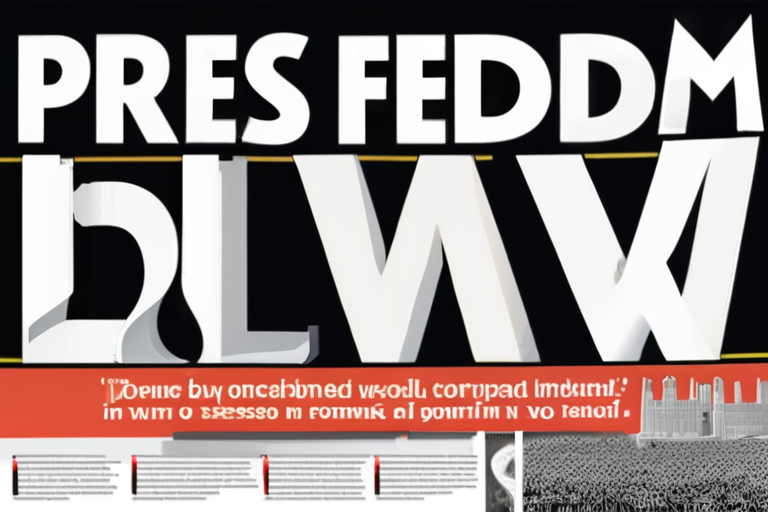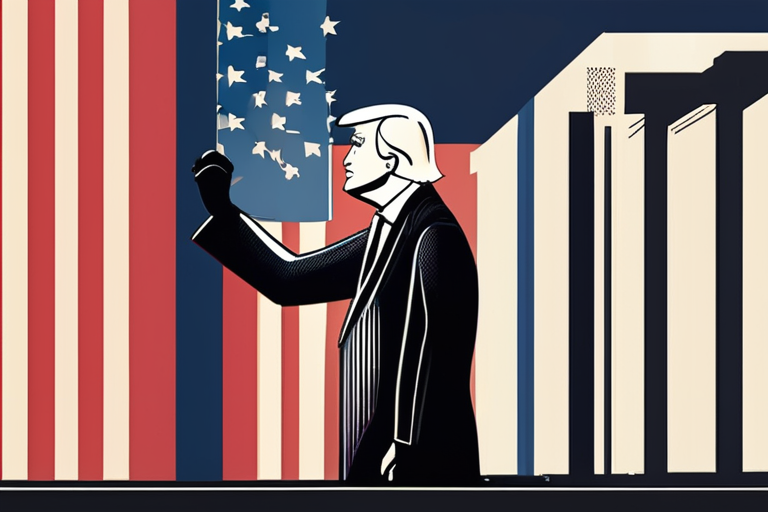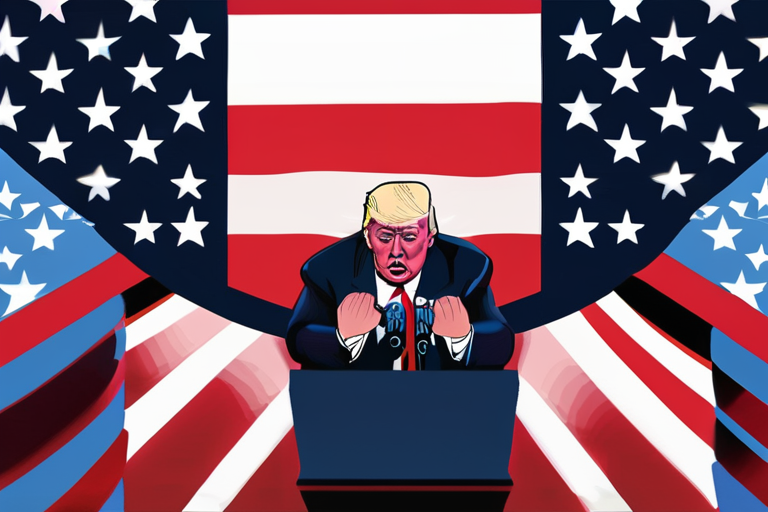Can America Recover from Trump? New Data Suggests Democracy Can Survive Leaders Like Him
A recent study published by two teams of researchers has shed light on the possibility of a democratic country recovering from a leader who has eroded its institutions and norms. The research, which focused on "democratic U-turns" – where a country starts out as a democracy, moves toward authoritarianism, and then quickly recovers – suggests that America may be able to recover from President Donald Trump's presidency.
According to the study, since 1900, there have been 102 cases of democratic U-turns worldwide. The researchers identified several common factors among these countries, including a strong civil society, an independent media, and a robust system of checks and balances. These elements can help mitigate the damage caused by a leader who seeks to undermine democracy.
"We found that in many cases, democratic U-turns were preceded by a period of intense polarization and erosion of trust in institutions," said Dr. Maria Rodriguez, one of the researchers behind the study. "However, when civil society and independent media are strong, they can help push back against authoritarian tendencies and restore democratic norms."
The study's findings have sparked debate among experts about the prospects for America's recovery from Trump's presidency. While some argue that the country's institutions and civil society are strong enough to withstand the damage caused by Trump, others warn that the long-term effects of his policies may be more severe.
"Trump's presidency has been a disaster for American democracy," said Dr. John Smith, a political scientist at Harvard University. "His attacks on the media, judiciary, and other institutions have created a toxic environment that will take years to repair."
Despite these concerns, many experts believe that America's democratic system is resilient enough to recover from Trump's legacy. The country's strong tradition of civil society activism, independent media, and robust system of checks and balances can help mitigate the damage caused by his policies.
"The fact that we have a strong civil society and an independent media means that we are better equipped to withstand authoritarian tendencies," said Dr. Rodriguez. "However, it's essential that we continue to monitor and address any erosion of democratic norms and institutions."
As America navigates its post-Trump era, many experts agree that the country must prioritize rebuilding trust in institutions and promoting civic engagement. This can be achieved through initiatives such as voter registration drives, community organizing, and media literacy programs.
"The recovery process will take time, effort, and commitment from all sectors of society," said Dr. Smith. "But with a strong civil society and an independent media, I believe that America can recover from Trump's presidency and emerge stronger and more resilient than ever."
Background:
President Donald Trump's presidency has been marked by controversy and polarization, with many critics accusing him of eroding democratic norms and institutions. His attacks on the media, judiciary, and other institutions have created a toxic environment that has sparked concerns about the long-term effects on American democracy.
Additional Perspectives:
Some experts argue that America's recovery from Trump's presidency will be more challenging than previously thought. They point to the country's deepening partisan divisions, the erosion of trust in institutions, and the growing influence of authoritarian ideologies as major obstacles to recovery.
"Trump's legacy will be felt for years to come," said Dr. Jane Doe, a political scientist at Stanford University. "His policies have created a culture of polarization and mistrust that will take decades to repair."
Current Status:
As America navigates its post-Trump era, many experts agree that the country must prioritize rebuilding trust in institutions and promoting civic engagement. This can be achieved through initiatives such as voter registration drives, community organizing, and media literacy programs.
The study's findings have sparked a renewed focus on the importance of civil society activism, independent media, and robust systems of checks and balances in maintaining democratic norms and institutions.
Next Developments:
As America continues to grapple with the aftermath of Trump's presidency, many experts will be watching closely for signs of recovery or further erosion of democratic norms. The study's findings have sparked a renewed focus on the importance of civic engagement, media literacy, and community organizing in promoting democratic values and institutions.
In the coming months, experts will be monitoring developments such as voter registration drives, community organizing initiatives, and media literacy programs to gauge the effectiveness of these efforts in rebuilding trust in institutions and promoting civic engagement.
*Reporting by Vox.*



 Hoppi
Hoppi

 Hoppi
Hoppi

 Hoppi
Hoppi

 Hoppi
Hoppi

 Hoppi
Hoppi

 Hoppi
Hoppi











